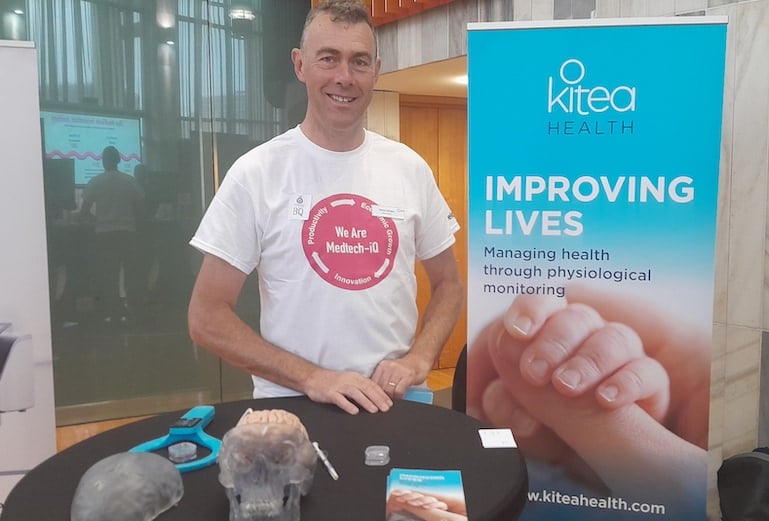A New Zealand medtech startup that’s developed a world’s first wireless brain monitor to remotely manage chronic illness has raised NZ$6 million (A$5.6m) to take the device to clinical trials.
Kitea Health spun out of the University of Auckland Bioengineering Institute after developing the implantable long-term brain pressure sensor, which could save the healthcare system up to 40% in treatment costs, amid better patient management, care outcomes and quality of life.
The $6 million round was led by local deep-tech venture capital firm Pacific Channel, supported by Auckland UniServices, Icehouse Ventures, CureKids Ventures, New Zealand Growth Capital Partners and local angel groups.
The funding will also be used to accelerate global expansion.
Cofounder and CEO Dr Simon Malpas said the wireless technology developed by Kitea is designed to address major challenges in the management of chronic conditions such as hydrocephalus (an incurable condition affecting more than one million people in the US alone) and heart failure.
“The funding received from investors is a major step forward. It enables us to significantly advance our NZ-based clinical trials in 2024 and fast-track our identified pathway to market; in the first instance, this is the US, which we aim to commence by the end of 2025,” he said.
“The device is roughly the size of a few grains of rice and is capable of remotely monitoring changes to pressure [in the brain for hydrocephalus patients] and sending real-time, accurate information straight to the healthcare professional and patient.
“Our current focus is hydrocephalus, a condition caused by the build-up of too much fluid in the brain. This is where we can make the biggest impact in a really short time frame and prove that the technology will make a significant improvement to the health and well-being outcomes of patients and their families.
“Hydrocephalus is a condition that affects mostly young children or the elderly, and while shunts can help alleviate increased pressure, they fail at a high rate, particularly in children. This leaves parents guessing whether every time their child suffers from what is considered an ordinary illness-type symptom – headaches, vomiting and irritability, that they’re actually suffering from increased pressure to the brain, which, unless treated urgently, could be fatal,” said Dr Malpas.
Using the device means patient measurements can take place remotely in their homes, which means early diagnosis of any changes to enable proactive care, lowering healthcare costs and improving clinical outcomes.
Pacific Channel partner Kieran Jina is on the Kitea board and sees massive potential for the concept.
“Their solution to monitoring pressure has the potential to drastically change the way chronic health conditions are managed globally, from what has typically been very reactive to a proactive approach,” he said.
“In addition, the team behind the solution has a clear vision of what it will take to capture the large hydrocephalus market and broaden this to other chronic health conditions. “
Kitea Health previously received $14 million in grant funding from a number of government and private research institutions, including the Ministry of Business, Innovation and Employment, Health Research Council, Neurological Foundation and Cure Kids.




















Trending
Daily startup news and insights, delivered to your inbox.